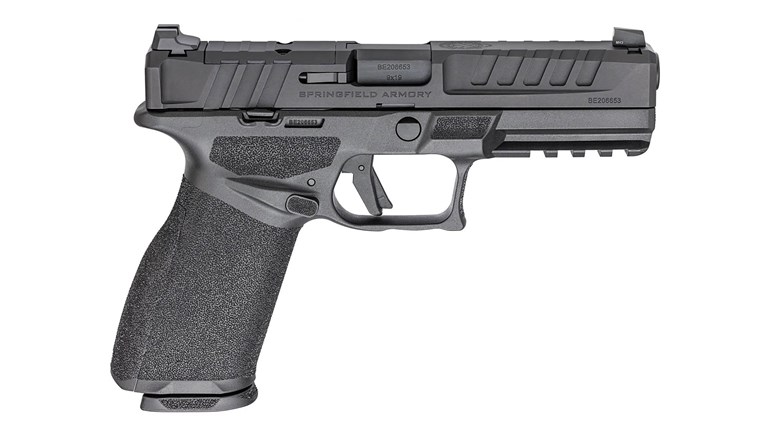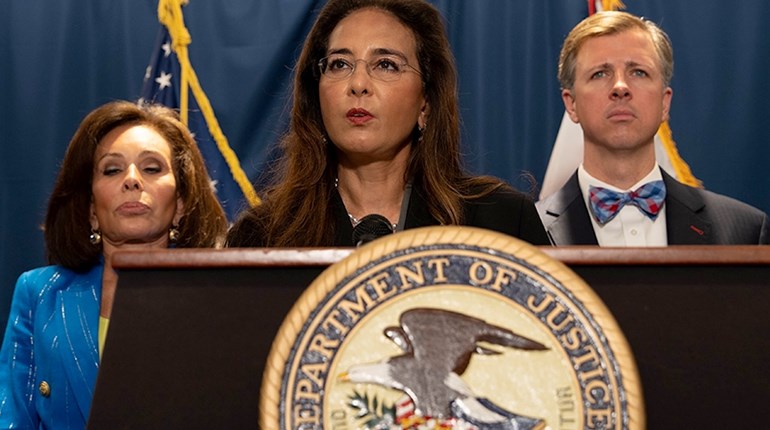
A recent poll from Gallup purports to show that the majority of Americans want more gun control, but is that the true story?
Released with the headline “Majorities Still Back Stricter Gun Laws, Assault Weapons Ban,” and conducted roughly a month before the 2024 elections, one could be forgiven for thinking that this might have been a winning issue for anti-gunners. But then why did so many of them lose at the ballot box, often by no small margin?
Gallup wrote that the poll found that “56% of U.S. adults support stricter laws covering the sale of firearms in general, while 33% prefer the laws be kept as they are now and 10% want them to be less strict.”
The question itself did not specify how laws covering the sale of firearms could be made stricter in any way.
The tone then shifted as Gallup wrote, “Americans continue to oppose an outright ban on handgun possession. In fact, the 20% of U.S. adults who would favor a law banning the possession of handguns, except by the police and other authorized persons, is down seven percentage points from last year and statistically tied with the 19% record low in the 65-year trend.”
These findings stand in direct opposition to the first part of the headline, even as it notes that support for such a ban is at an all-time low. As for the latter part of the headline, a slim majority (52%) of whomever was polled were found to support a “a ban on the manufacture, possession and sale of semiautomatic guns, known as assault rifles” in contrast to 47% who are against it. The addition of “known as assault rifles” is particularly misleading, given that it is a politically manufactured term that potentially skews the responses.
Digging a little deeper, a sharp divide emerges among partisan lines with “89% of Democrats supporting stricter gun laws compared with 56% of independents and 25% of Republicans.” The data also showed that 59% of Republicans favor keeping firearms sales laws as they are now, while 15% prefer less-strict laws.
Gallup also writes that “the decline in support for a handgun ban this year is largely owed to Democrats, whose backing has fallen by 16 points since 2023 to 33% -- a new low -- after the group showed increasing support for a ban the prior two years.” A quick glance at the data shows that support for a handgun ban has steadily been decreasing for Republicans, Democrats and independents over the last two decades. It also shows that support for a ban on “semiautomatic rifles, known as assault rifles,” is also down on all sides over the past five years.
It’s also worth noting that the poll “randomly” sampled only 1,023 adults throughout all 50 states and Washington, D.C., with a margin of error of ±4% and 95% confidence.
So, what does Gallup say is the “bottom line” of this poll? “A majority of Americans have an appetite for stricter gun laws in the U.S., and that includes an assault weapons ban,” wrote Gallup before adding the ever helpful “but.” It’s only after this “but” that Gallup concedes the Americans they polled do not favor a ban on handguns, that support for gun control is trending downward across both major political parties, and that gun control was not a top issue on the minds of American voters prior to the elections.
Gallup’s headline ignores the plain reality that gun control is not a political winner, which was so clearly shown in abundance throughout the elections earlier this month and the campaigns that preceded them. Even Kamala Harris and Tim Walz, whose campaign supported increased gun control, were out on the campaign trail attempting to portray themselves as pro-gun politicians.
Many NRA-endorsed candidates were successful throughout the country, and those that ran against them often masked their anti-gun animus or attempted to dishonestly paint themselves as sitting in the pro-freedom camp, as Harris and Walz did.
It also ignores the fact that law-abiding Americans have been purchasing firearms in record numbers. According to data from the National Shooting Sports Foundation, over one million background checks have been conducted for the purchase of a firearm per month for 63 months running, otherwise known as voting with their wallets.


































